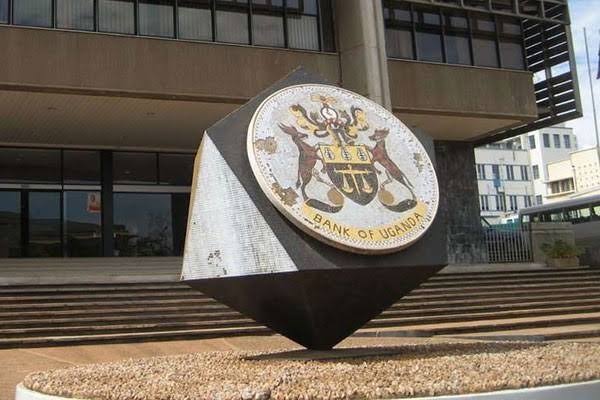By Amiri Wabusimba.
For decades, Uganda has struggled with systemic weaknesses in financial oversight, exposing the country to corruption and mismanagement of public funds.
The latest scandal, involving the unauthorized diversion of 60 Billion Ugx from the Bank of Uganda, has once again placed the Ministry of Finance at the center of controversy.
These funds were illicitly redirected to private accounts in Tokyo and London, triggering a national outcry over accountability within Uganda’s financial institutions.
The situation escalated on February 4, 2025, when the Criminal Investigations Directorate (CID) arrested nine senior officials from the Ministry of Finance.
Among them was Lawrence Semakula, the Accountant General, a key figure responsible for fiscal accountability.
His arrest, along with other high-ranking officials, has fueled speculation about the extent of systemic financial malpractice within the Treasury.
The role of Ramathan Ggoobi, the Permanent Secretary of the Ministry of Finance and Secretary to the Treasury, becomes particularly critical in this case.
As the highest-ranking public servant in the Ministry, he holds ultimate responsibility for ensuring the government’s financial systems operate efficiently and with integrity.
The fact that such a large-scale financial scandal occured under his leadership raises concerns about the Ministry’s internal controls and oversight mechanisms.
While the detained officials including Jennifer Muhuruzi, the Acting Director of Treasury Services and Asset Management, Pedson Twesigomwe, the Assistant Commissioner of Accounts, and Tonny Yawe, a Senior IT Officer held influential positions within the Ministry, their arrests are only one piece of a much larger puzzle.
Financial fraud of this magnitude is rarely the work of a few rogue individuals; it often signals deeper institutional failures.
Ministry of Finance has been implicated in financial irregularities before, in 2007 CHOGM funds scandal, where millions were misappropriated, and the 2012 pension scam, in which billions were siphoned off through fictitious claimants and more recently, the misallocation of COVID-19 relief funds in 2020 revealed a pattern of inflated procurement deals and ghost beneficiaries are stark reminders of a governance structure that has repeatedly failed to prevent such abuses.
The recurrence of such scandals suggests that financial misconduct thrives in an environment where internal controls are weak, accountability is selective, and digital monitoring systems are either inadequate or deliberately circumvented.
Other African nations facing similar challenges have taken significant steps to curb corruption.
Kenya’s Integrated Financial Management Information System (IFMIS) has strengthened budget tracking, while Ghana’s digitization of revenue collection has enhanced transparency in public fund management.
Uganda’s failure to adopt similar measures raises concerns about political will and institutional inertia.
The timing of the fraudulent withdrawals was critical as Bank of Uganda was operating under an acting governor following the passing of the previous central bank chief by the time of the incidence.
The absence of a substantive governor may have weakened oversight mechanisms at the central bank, creating an opportunity for fraudulent transactions to bypass multiple approval levels within the Treasury.
This raises serious concerns about the effectiveness of Uganda’s financial oversight.
The government’s swift response was to appoint Dr. Michael Atingi-Ego as the substantial Governor and Professor Augustus Nuwagaba as Deputy Governor, an attempt to restore credibility.
However, leadership changes alone cannot resolve deeply entrenched governance flaws.
Uganda must treat this crisis as a turning point for financial governance with meaningful reforms going beyond political statements and result in concrete institutional changes.
Real-time financial tracking systems, similar to Kenya’s IFMIS, could reduce human interference and make it harder for funds to be siphoned off without detection.
Automating the payment systems for public funds, as seen in Ghana’s digitized tax and revenue collection, would minimize human manipulation.
Government must also consider adopting block chain-based financial systems to enhance transparency and reduce the risks associated with manual financial processing.
The government’s response to this scandal will determine whether it is serious about tackling corruption.
Selective justice, where only low-ranking officials face prosecution while senior figures remain untouched, would only reinforce public skepticism.
A transparent trial process for all implicated officials, regardless of rank, is necessary to restore trust in Uganda’s financial institutions.
The 60 Billion shilling scandal is not just about missing money it is about the integrity of Uganda’s financial system.
If decisive action is not taken, the long-term economic implications could be severe.
Investor confidence may dwindle, international partners may impose stricter conditions on financial aid, and ordinary Ugandans will continue to bear the burden of financial mismanagement through higher taxes and economic stagnation.
History has shown that without meaningful reform, financial scandals in Uganda tend to fade into political noise, only for new ones to emerge.
The question remains: will this crisis serve as a catalyst for genuine change, or will it become yet another cautionary tale of a nation struggling to break free from the grip of corruption?
The answer will unfold in the months ahead as the legal and institutional responses to this scandal take shape.

Amiri Wabusimba is a diplomatic Scholar, Journalist, political analyst and Human Right activist. Tel: +56775103895 email: Wabusimbaa@gmail.com.
Have An Advert Or Article You Want Us To Publish? Whatsapp: +256786288379 or email binocularugnews@gmail.com
